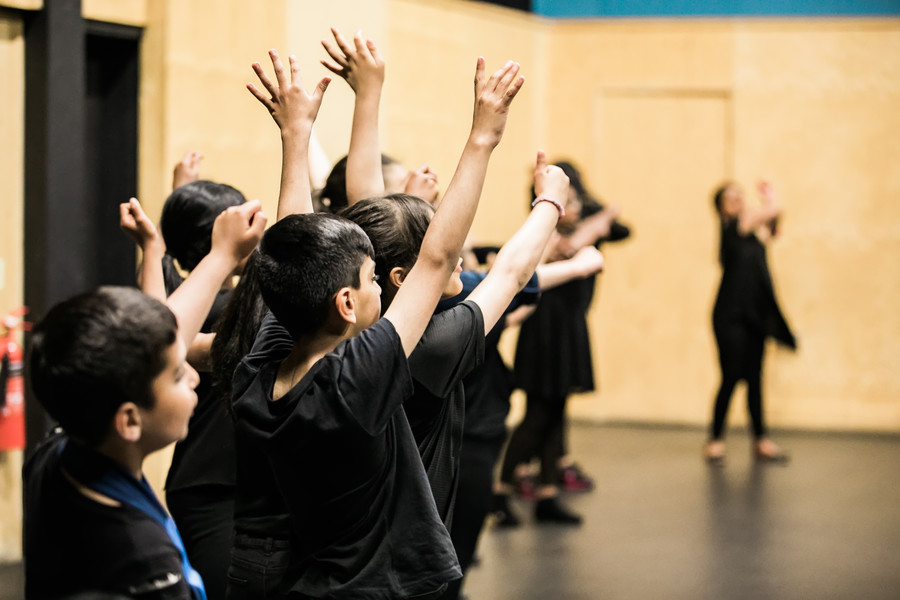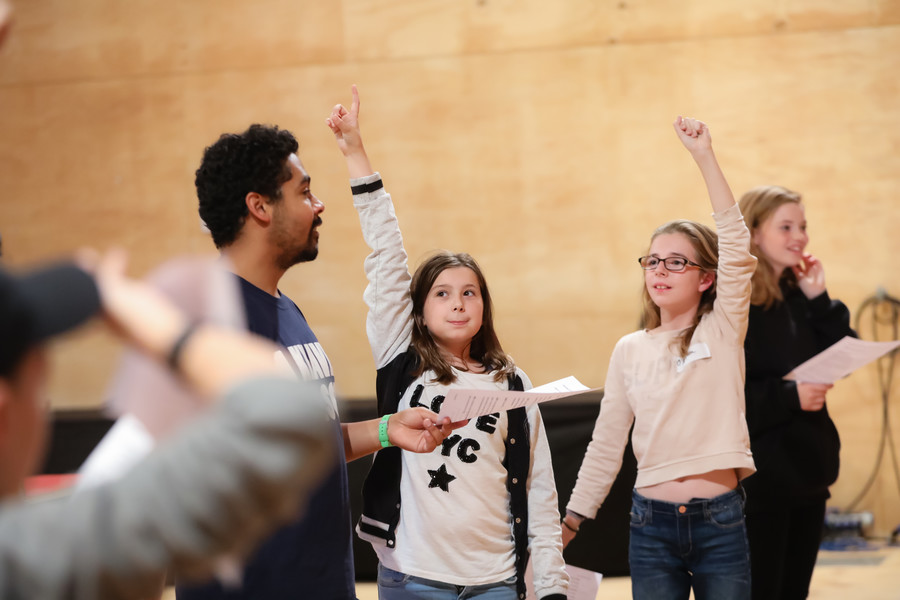
RSC TO BECOME FIRST PERFORMING ARTS COMPANY TO BE GIVEN INDEPENDENT RESEARCH ORGANISATION STATUS
- First Associate Scholars announced and a commitment to being a Teaching Theatre
The Royal Shakespeare Company has been awarded Independent Research Organisation (IRO) status by the Arts and Humanities Research Council (AHRC), part of UK Research and Innovation (UKRI). The RSC is the first performing arts organisation to receive the award. It will enable the Company to conduct crucial research, from exploring the role of immersive technologies in performance, to engaging a more diverse talent base in the performing arts.
In moves that echo founder Peter Hall’s original vision for the RSC to become ‘a teaching and research institution’, the newly acquired IRO status will allow the Company to broaden its research capacity and develop its role as a national centre for Shakespeare and performance, teaching, training, learning and research.
The IRO status recognises the economic and social contribution of the cultural sector and is designed to support research in the UK’s major culture and heritage organisations. The RSC will expand its research into a range of subjects including immersive technologies in performance, the impact of theatre-led approaches in education, audience engagement, developing a diverse talent base, considering organisational structures for the 21st Century and ensuring fairer access to and representation across the performing arts sector.
The RSC also announced the Company’s first Associate Scholars, Professor Ayanna Thompson, Professor James Shapiro and Professor Emma Smith, who will work with the RSC to guide, advise and inform its work in person, online and across all locations.
The IRO status and Associate Scholars are an important part of the RSCs commitment to being a Teaching Theatre. The Company is uniquely placed to bring together teaching, research, and theatre practice as all three are interwoven into the RSC’s work on and off stage, online, in classrooms and communities.
This announcement builds on a successful legacy of collaboration between the RSC and AHRC. Most recently, this includes the UKRI-funded Dream, a pioneering collaboration exploring how audiences could experience live performance in the future.
Commenting on the award, Erica Whyman, Acting Artistic Director, said:
‘Peter Hall’s vision for the RSC to be a producing theatre as well as a world-class teaching and research specialist still inspires us today. We’ll be a different kind of IRO as our work is already rooted in research-based practise. From our artistic process and output, our superb archives and Collection which detail performance history, to understanding the significant impact of arts-rich schools on the development of children and young people, a spirit of enquiry runs through every aspect of the organisation’.
‘Some of our latest research around Dream as part of the Audience of the Future initiative, is discovering the role of immersive technologies and virtual production in live and digital performance, looking at how audiences may experience live performance in the future. The new IRO status will enable us to build on this and ensure the performing arts plays a critical role in setting and leading the research agenda alongside existing IROs’.
The Company’s first research project as an IRO is funded by Paul Hamlyn Foundation and expands on the findings of the 2018 Time to Listen study. This captured the enormous value that young people place on creativity and arts learning in their education. It also confirmed the importance of RSC approaches to teaching Shakespeare and the positive impact they have on learning outcomes for young people. This next major research project will provide a deeper insight into why this is and what works most effectively, with the findings informing RSC practice and influencing the work of wider cultural and education sectors and key policy and decision-makers for the benefit of future generations.
Professor Christopher Smith, AHRC Executive Chair, said:
‘For over fifty years the RSC has challenged audiences to ask important questions about our society, our culture and ourselves through the power of performing arts.
Its new status as an Independent Research Organisation will enable the RSC to work with AHRC to fully explore these questions on and off the stage.
‘The research undertaken by the RSC as an Independent Research Organisation will help all of us to imagine an exciting future for the performing arts, and shape a more dynamic, resilient and inclusive cultural ecosystem.’
The RSC will establish a dedicated Research Board, chaired by RSC Trustee and newly appointed Associate Scholar, Professor, Ayanna Thompson to oversee the delivery of a new Research Strategy. One of the Company’s aims is to oversee the co-ordination and development of research projects that will contribute to building a stronger performing arts sector.
Ayanna Thompson, RSC Board and Regents Professor of English at Arizona State University, said:
‘The RSC is uniquely poised to change the way we encounter Shakespeare in the 21st century. It is exciting to plan and design new research projects that are performance-based, education focused, and technologically informed. The RSC’s new teaching theatre model will advance the way we think about Shakespeare and social justice.’
Priorities for RSC research include:
- Analysing the impact of Shakespeare’s work and language on the learning outcomes and development of cultural capital in children, young people and adults
- Tracking the detailed and specific advancements required to develop and implement inclusive practise and behaviours
- Assessing the civic impact and place-shaping role of arts and cultural organisations
- Building on our leadership of Audiences of the Future
- Developing a cohort of doctoral level researchers within the RSC
- Engaging with the Company’s collections and archives to illuminate theatrical, literary and adaptation histories


